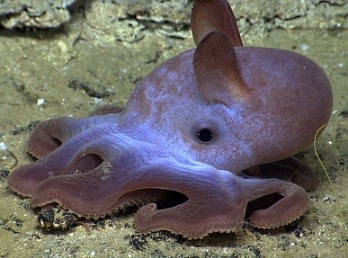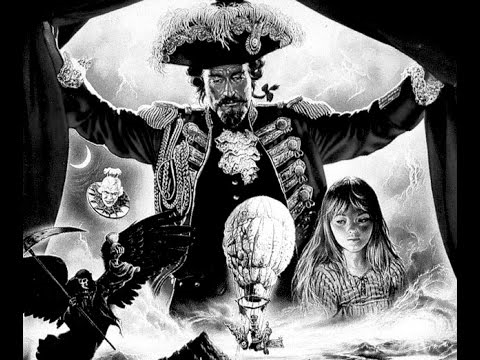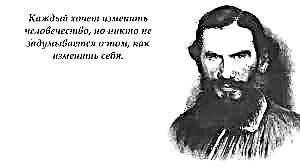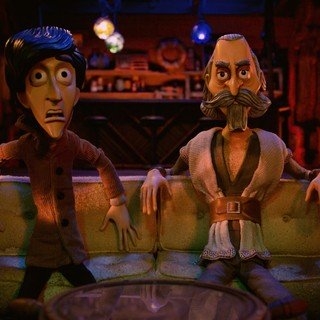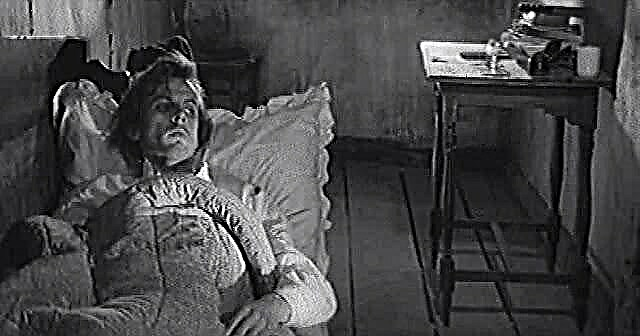Andromache appears, and Pyrrhus tells her that the Greeks are demanding the death of her son, but he is ready to refuse them and even start a war over a child if Andromache marries him. However, she responds with a refusal - after the death of Hector, she does not need neither the splendor nor the glory of the queen, and since she cannot save her son, she is ready to die with him.
Meanwhile, the insulted Hermione tells her maid that she hates Pyrrhus and wants to destroy his alliance with Andromache, that their sorrows are “the best reward for her,” but she hesitates and does not know what to do, either give preference to Orestes, or hope for love pyrrhus.
Orestes appears and tells Hermione about his unquenchable and hopeless love for her. Hermione leads a double game and answers Orestes, which always remembers him and sometimes sighs. She demands that Orestes find out what Pyrrhus decided to send her to her father or marry her. Orestes hopes that Pierre will abandon Hermione.
Pyrrhus also plays a double game and, upon meeting with Orestes, declares that he has changed his mind and is ready to give his son Hector to the Greeks and marry Hermione. He instructs Orestes to notify her of this. He does not know what to think. Pyrrhus tells his teacher Phoenix that for too long he sought the favor of Andromache and risked too much for her and all in vain - in return only rebukes. He cannot decide finally what to do.
Orestes, meanwhile, is in despair - he wants to abduct Hermione and does not listen to the reasonable arguments of his friend Pilad, who advises him to flee Epirus. Orestes does not want to suffer alone - let Hermione suffer with him, having lost Pyrrhus and the throne. Hermione, forgetting about Orestes, extols the virtues of Pyrrhus and already sees himself as his wife.
Andromache comes to her with a request to persuade Pyrrhus to let her and her son go to a deserted island to hide from people. Hermione replies that nothing depends on her - Andromache herself needs to ask Pyrrhus, for he will not refuse her.
Andromache comes to Pyrrhus and begs him on his knees not to give his son, but he replies that she herself is to blame for everything, since she does not appreciate his love and patronage. At the last moment, Pierre invites Andromache to choose: the crown or death of his son. The wedding ceremony has already been appointed.
A friend of Andromache Sefiza tells her that maternal debt is paramount and must be ceded. Andromache hesitates - after Pyrrhus destroyed her city of Troy, she decides to seek advice from the shadow of Hector.
Andromache later reveals his plan to Sefize. Having learned the will of Hector, she decides to agree to become a Pyrrhic wife, but only until the wedding ceremony ends. As soon as the priest finishes the rite and Pierre before the altar takes an oath to become the father of her child, Andromache will stab himself with a dagger. So she will remain faithful to her duty to her dead husband and save her son’s life, for Pyrrhus will not be able to abandon her oath in the temple. Sefiza will have to remind Pyrrhus that he vowed to love the stepson and educate him.
Hermione, having learned that Pyrrhus changed his mind and marries a Trojan, demands that Orestes avenge her shame and kill Pyrrhus during the ceremony in the temple. In this way he will earn her love. Orestes hesitates: he cannot decide to kill the king by stabbing him in the back, for no one would praise such an act in Greece. Orestes is ready to fight "in a direct and honest war." Hermione, on the other hand, requires Pyrrhus to be killed in the temple before the marriage - then her shame will not be disclosed to all the people. If Orestes refuses, then she herself will go to the temple and kill Pyrrhus with her dagger, and then herself - she would rather die with him than remain alive with the cowardly Orestes. Hearing this, Orestes agrees and goes to the temple to commit the murder.
Hermione meets Pyrrhus and listens to his excuses: he says that he has earned her reproach, but cannot resist passion - “weak-willed and in love,” he longs, contrary to reason, to name the wife who not only does not love him, but simply hates him. This is the main idea of Racin’s play - “to prevent passions in vain, like a thunderstorm”. The heroes of Andromache, like many plays by the playwright, cannot act according to reason and duty not because they do not want to. They know what their duty is, but they are not free in their actions, because they cannot overcome the passions that have gripped them.
Hermione answers Pyrrhus that he came to show off before her with his dishonesty, that he "honors only arbitrariness" and does not keep his word. She reminds Pyrrhus of how he killed the old king Priam in Troy and “strangled” his daughter Poliksen - these are the heroes he “became famous for”.
Pyrrhus remarks in response that he used to be wrong, believing that Hermione loves him. But now, after such words, she realizes that she wanted to become his wife only by duty, and not by love. The easier it will be for her to endure his refusal.
Hearing this, Hermione becomes furious - didn’t she love Pierre? How dare he say so! After all, she sailed to him “from the other side of the world”, where more than one hero was looking for her hands, and waited a long time for Pyrrhus to announce her decision. Now she threatens him with retribution: the gods will avenge him for breaking his promises.
Left alone, Hermione tries to sort out her feelings. She is torn between love and hate, and yet decides that Pyrrhus must die, since he did not go to her, for she sacrificed too much for him. If Orestes does not decide to kill, then she herself will commit it, and then kill herself. She doesn’t care who dies - Orestes or Pierre, just to somehow pour out her anger.
Orestes appears and tells Hermione about how his detachment entered the temple and, after completing the rite, cut Pierre down. Hearing this, she enrages and curses Orestes. Instead of rejoicing, she accuses him of the heinous murder of a hero. Orestes reminds her that he did everything on her orders. She answers him that he believed the words of a woman in love, whose minds were darkened, that she didn’t want that at all, saying that she had “heart and mouth in disagreement with each other”. Orestes should have let her change her mind and not rush to the vile revenge of Pierre.
Orestes alone reflects on how he, having forgotten the arguments of reason, could commit a vile murder and - for whom? - for the one who, having imposed on him the vile role of a murderer, repaid ingratitude for everything! Orestes despises himself after all that has happened. His friend Pilad appears and calls Orestes to flee Epirus, for a crowd of enemies wants to kill them. Hermione, it turns out, committed suicide over the body of Pyrrhus. At these words, Orestes understands that the gods decided to punish him, that he was born unhappy and now he has to drown in the blood of Pyrrhus, Hermione and his own. He raves - it seems to him that this is Pyrrhus, and not Pilad stands in front of him and Hermione kisses him. Then he saw the Erinis, whose heads were entwined with snakes. They are the goddess of vengeance, pursuing Orestes for the murder of his mother, Clytemnestra. According to myth, Orestes avenged his mother for the murder of his father, Agamemnon. Since then, the Erinians have been haunting him all his life. At the end of the play, Orestes asks the Erinis to give way to Hermione - let her torment him.

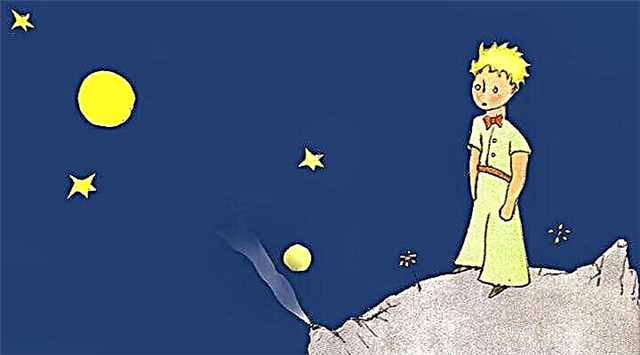
 Moby Dick
Moby Dick

